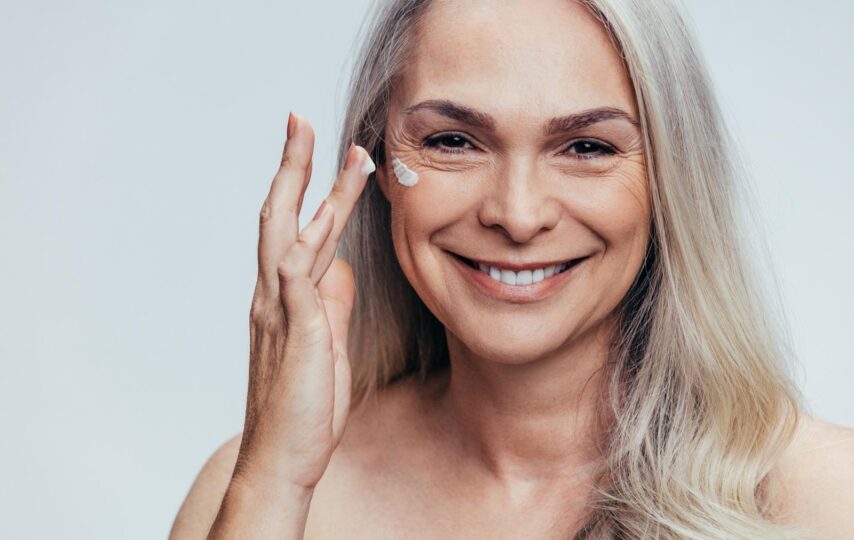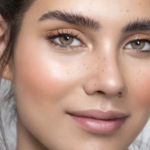Every cosmetics company that is any cosmetics company has their own version of an anti-ageing or anti-wrinkle cream, but how well do they work as far as actually preventing the inevitable?
What are anti-ageing creams?
In case you are fortunate enough to have evaded several generations of misogynistic targeted marketing imploring women never to age, you might not know what an anti-ageing cream is; though that seems unlikely.
To remind you, nonetheless, anti-ageing creams are usually moisturiser-based skincare products that promise to make the consumer look younger than their biological age by reducing, masking or preventing signs of skin ageing, namely sagging, wrinkles and photoaging. Such products can tackle redness, brown discolourations, yellowing, abnormal growths and rough texture.
Anti-ageing products: a history
While fighting the effects of ageing is a concept that can be traced back centuries, Florence Wall was the person who produced the first cosmetic hormone cream claiming to reverse the signs of ageing back in 1927. This anti-ageing cream allegedly contained glandular secretions from a tortoise- it’s fair to say we are glad times have moved on since then.
Though the product didn’t fare too well at the time, Wall nevertheless triggered a revolution in the cosmetic market and set in motion generations of companies fighting to reverse the ageing process by way of creams, serums and other cosmetic products.
Do they really do what they promise?
In 2020, the global anti-ageing market was thought to be worth around 58.5 billion U.S. dollars. Six years earlier, in 2014, facial anti-ageing skincare products were ranked second among skincare categories, with sales reaching 1.15 billion U.S. dollars. So, we can agree that anti-ageing products are in as high demand as ever and are not going away anytime soon.
But to cut to the chase and answer the age-old question: do anti-ageing creams actually work?
Despite their enduring popularity, there is very little science-backed evidence to support that anti-ageing products and treatments provide lasting or major positive effects. However, that’s likely because there have been very few products that have undergone rigorous scientific testing.
One study highlighted that the best performing creams decreased wrinkles by less than 10% over 12 weeks, which is not actually visible to the human eye. Another study found that cheaper moisturisers were as effective as anti-wrinkle creams at a more premium price.
By contrast, a study published in the British Journal of Dermatology which was conducted on cosmetic company Boots’ very own No.7 anti-ageing product, demonstrated that 70% of individuals using the product had significantly fewer wrinkles after 12 months of daily use compared to volunteers using a placebo. In other words, this product worked as a treat on aged skin.
As such, the extent to which our beloved anti-ageing products actually slow down the visible signs of getting older remains unclear, with conflicting studies evidencing both that they have little success and that they make visible improvements.
Factors that age the skin
Despite a void of evidence to suggest that years of routine anti-ageing cream application will spare you the inevitable creases and wrinkles, we see no harm in adopting such a product into your skincare ritual and giving it a go regardless. Not least because they are often packed with nourishing ingredients that will benefit your skin.
That said, it is critical to note that if you wish to use an anti-ageing product, you do so in combination with a healthy lifestyle and an awareness of the factors ageing your skin that are beyond your control. Those are:
- Free radicals, are known as unstable molecules in the body that damage cells, leading to premature wrinkles, among other things;
- Sun exposure. One of the primary factors contributing to wrinkled, spotted skin is sun exposure, also known as photoaging;
- Pollution. The type of air in your environment has its effects on your skin, particularly if you’re living in a heavily-polluted city;
- Loss of subcutaneous support. This is the sagging of the fatty tissue between your skin and muscle, which unfortunately comes as another result of ageing;
- Lifestyle. Among the costs of lifestyle habits like smoking is prematurely aged skin;
- Diet is another determinant of how your skin ages. Vitamin C-rich foods are thought to reduce wrinkles and regenerate skin cells;
- Genes. Often the way we age comes down to our DNA, which is a factor not even cream can fight;
- Personal habits. For example, smoking tends to produce free radicals, once-healthy oxygen molecules that are now overactive and unstable.
The key to ageless skin
As we age, an endless flurry of things happens to our skin. So, which scientifically-backed ingredients can we invite into our skincare routine to keep our skin looking smooth and supple? Some key examples recommended by dermatological experts are as follows:
Vitamin C
As we saw earlier, vitamin C can do wonders for your skin as part of your diet. This is also true of topical vitamin C, which accelerates the production of both collagen and elastin- two important proteins in the skin which help keep it plump and firm. Topical vitamin C can help prevent premature ageing of the skin, keeping it youthful and smooth.
Vitamin E
Vitamin E comes with a whole host of benefits, hydrating and healing skin as well as acting as an anti-inflammatory. Its positive effects are even greater when used in tandem with vitamin C; the combination of these two vitamins is believed to work better than using either one alone.
Argan Oil
This plant-based oil hails from argan tree kernels and is an antioxidant and anti-inflammatory agent that can help with skin healing, moisturise the skin and even prevent and reduce signs of sun damage. It also may also tackle wrinkles and fine lines, as well as scarring and stretch marks.
Hyaluronic acid
This component occurs naturally in our bodies and, when added to our skincare routine, helps lock in moisture as well as prevent it from evaporating into the atmosphere.
Also Visit: 5G Standalone value with Mobile Network testing & RF Drive Test Tools
Ceramides
These are fats that are also present in our bodies but whose levels drop as we age. Ceramides keep our skin smooth and supple and, according to one study, increase the moisture of our skin by more than 100%.
Green tea extract
Green tea contains Vitamin C, which gives it antioxidant and anti-inflammatory properties. In this vein, it has been suggested that green tea used in skincare can minimise sun damage and decrease collagen breakdown.
Retinol
Derived from Vitamin A, Retinol is one of the most widely-studied skincare ingredients out there. It is known for promoting skin regeneration, decreasing acne and boosting collagen levels. Not only does it act like an antioxidant and potentially offset free radial trauma, but it can also help decrease fine lines and wrinkles and may even help address sun damage.
Final Word
We can work on the assumption, then, that those anti-ageing products are neither myth nor miracle. They won’t do anything if you use them regularly over the course of your life- as any skincare routine, especially one including the ingredients we mentioned above, is far better than leaving the condition of your skin to change- but they equally won’t knock ten years off your skin’s appearance.
It’s thus important to manage your expectations with some of the products on the market that may stretch the truth about what they do, all the while taking care of your skin with trusted cosmetics and a balanced and healthy lifestyle.
Also Visit: Gimkit Com Live – Gimkit.com join













